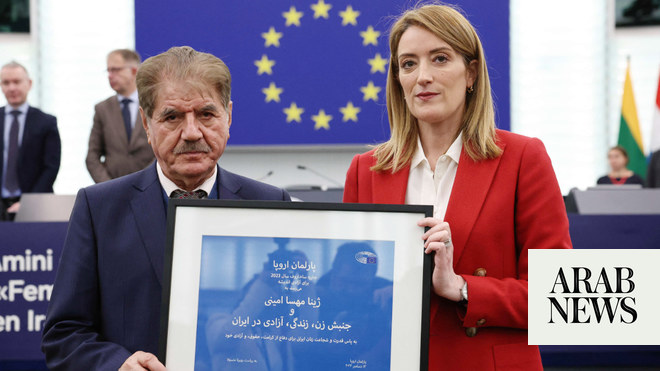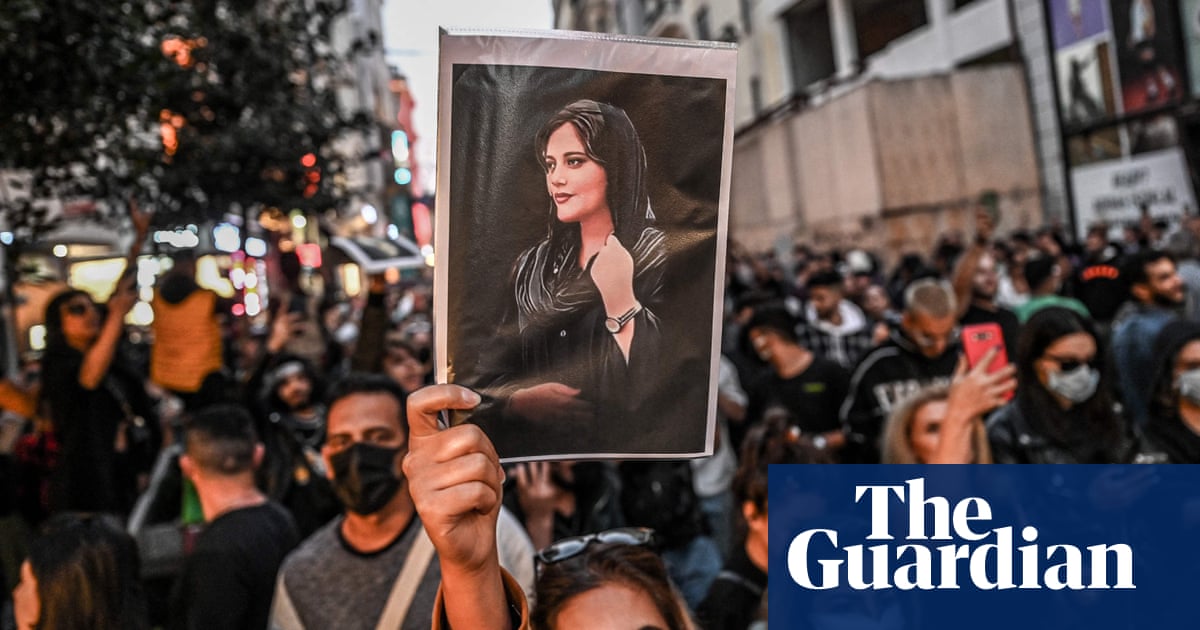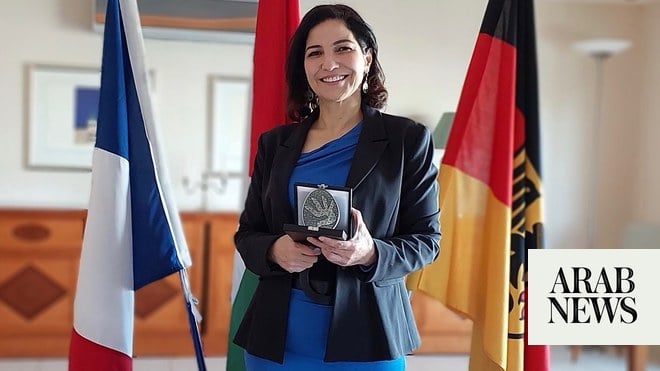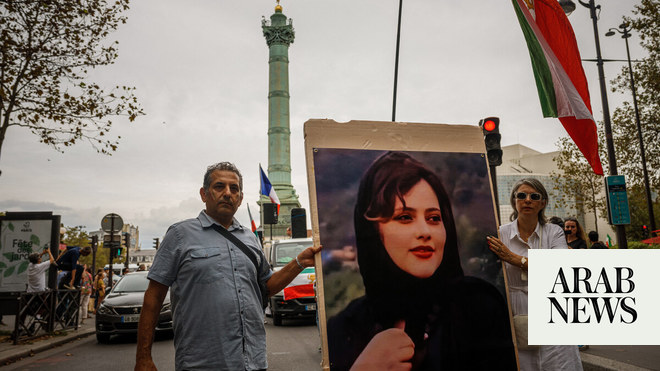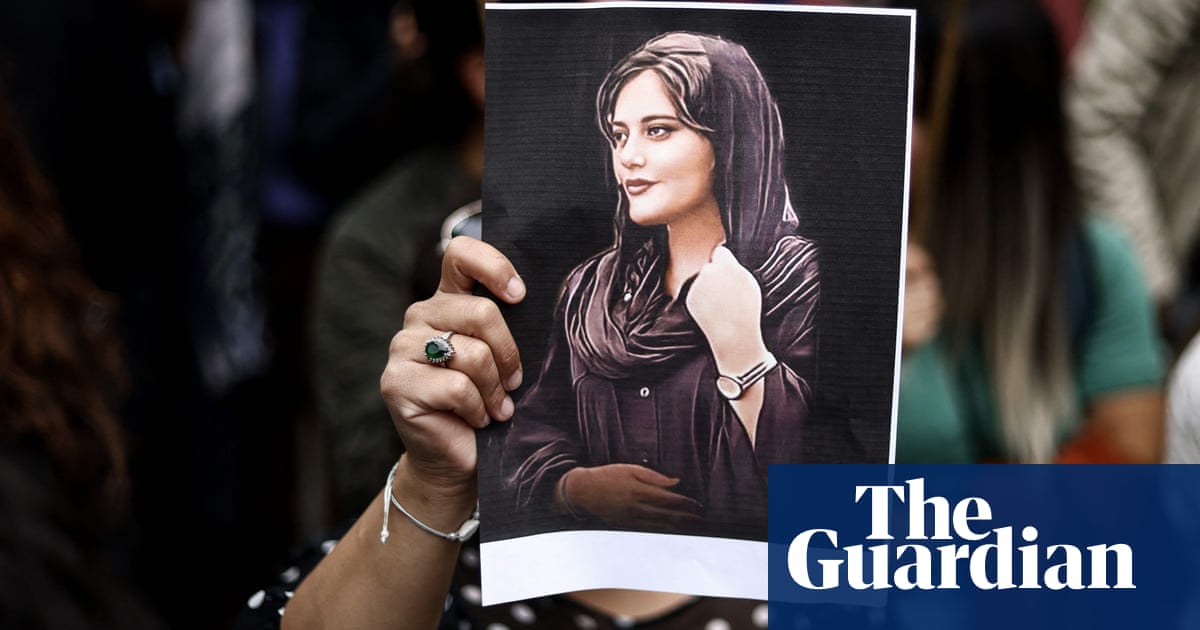
Mahsa Amini, the 22-year-old Kurdish Iranian woman who died in police custody in Iran last year, sparking worldwide protests against the country’s conservative Islamic theocracy, has been awarded the EU’s top human rights prize.
The award, named for the Soviet dissident Andrei Sakharov, was created in 1988 to honour individuals or groups who defend human rights and fundamental freedoms. Sakharov, a Nobel peace prize laureate, died in 1989.
Amini died on 16 September 2022, three days after she was arrested for allegedly violating Iran’s mandatory headscarf law. The European parliament president, Roberta Metsola, said that day would “live in infamy” and Amini’s “brutal murder” marked a turning point.
“It has triggered a women-led movement that is making history,” Metsola said as she announced the awarding of the prize to Amini and the Woman, Life, Freedom movement in Iran. “The world has heard the chants of ‘women, life, liberty’. Three words that have become a rallying cry for all those standing up for equality, for dignity and for freedom in Iran.”
A year after the wave of anti-regime demonstrations that followed Amini’s death, in which human rights groups said more than 500 protesters were killed by the security forces and more than 19,700 were arrested, the protests have largely been suppressed. Yet Amini’s death has proved a turning point for many ordinary Iranians.
Reza, a university student from Mashhad who joined the protests with female colleagues, said he was subjected to physical and mental harassment by the security forces.
“In totalitarian regimes, freedom of speech is one of the red lines for governments and the same is true for the Islamic Republic of Iran,” he said. “In the past year, various awards and titles have been given to Iranian women and the Women, Life, Freedom movement, which makes us proud. From the Nobel peace prize awarded to Narges Mohammadi, and today for Mahsa Amini to receive the Sakharov prize, both show us that the voices of our protests have been heard in the world.”
The awarding of the Sakharov prize to Amini comes as another young woman, 16-year-old Armita Geravand, is understood to still be in a coma 18 days after she collapsed after what rights groups outside the country have alleged was an encounter with a hijab enforcer on the Tehran metro. Iranian authorities say she fainted due to a drop in blood pressure.
Two days earlier, the Iranian government passed a chastity and hijab law that extended harsh punishments, including a 10-year prison sentence and hefty fines, for women who defy the legal requirement to wear the hijab in public.
Haleh Blake, a UK-based Iranian-British activist and co-founder of grassroots rights group United4Mahsa, said: “As a community, we are thrilled to see recognition of the human rights movement that started with Mahsa’s death and to see continuation of her legacy and others who have lost their lives in the process, for the very basic human rights, what to wear.
“Whilst we welcome the awards and recognition for the peaceful movement, we haven’t seen meaningful support from the [UK] government and we hope that this will encourage policymakers to act, as this movement is very much alive and kicking.”
Masih Alinejad, an Iranian journalist and activist living in exile, said: “In Iran, I believe that Iranian women are brave enough to face guns and bullets. To face imprisonment and to say no to the Islamic Republic. This prize and recognition should encourage the free world, especially the women leaders of the European parliament, to be brave like the Iranian women and say no to this gender apartheid regime. We need unity among women across the globe against the human rights abuses happening in Iran.”





